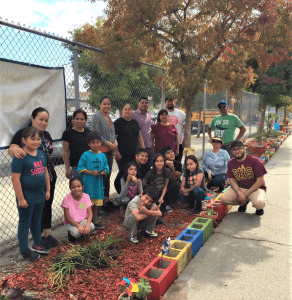Parent Involvement in Education: The Key to a Healthy Future
 It’s widely apparent that education is not equal. Some schools have multitudes of resources and funding while others have little, and this is largely based on zip code. But there is one thing that cuts across these lines—one thing that has been proven, regardless of income, race, or location, to boost student achievement: parent involvement.
It’s widely apparent that education is not equal. Some schools have multitudes of resources and funding while others have little, and this is largely based on zip code. But there is one thing that cuts across these lines—one thing that has been proven, regardless of income, race, or location, to boost student achievement: parent involvement.
Several studies over the past five decades have shown that when parents are involved in their child’s education, it improves academic achievement. But beyond academic achievement, parent involvement is also associated with better behavior, social skills, and mental health. The CDC calls parent engagement a “protective factor” that may help children avoid risk behaviors that affect their health and learning.
But what does parent involvement look like?
For one thing, you don’t have to be a parent—any caregiver or guardian plays just as strong of a role in educational involvement. It also can take place at home or at school. Many parents and caregivers lack the time to volunteer at their child’s school, but having daily conversations at home about what your kids are learning and what interests them about school is an effective way to stay involved. Others include:
- Encourage your child to apply what they learn in school to real life situations to help them grasp the importance of what they are being taught.
- Be positive! Maintain positive attitudes about the school and education in general.
- Respond to your child’s academic struggles in an empathetic and supportive way, and frame them as an opportunity for growth. It’s OK to not be good at everything, so it’s about helping them find their strengths and what they respond enthusiastically toward.
- Check in with your child’s teacher and attend parent-teacher conferences, family nights, and other events. Make sure communication goes two ways.
- Stay informed about your school’s policies around things like health and wellness, discipline, social emotional learning, and more. You may find areas of weakness that are good starting points for advocating for change.
Schools have a role to play, too.
A key component of creating a healthy, supportive school environment is family engagement. Making sure parents and caregivers are not only aware of school happenings, but invited to them, too, has a huge impact on students. And parents should be given a voice in policy and programs, as well as plenty of opportunities to see what’s happening. This could mean inviting them to volunteer or visit during lunch, recess, PE, after-school programs, and other regular activities. Finally, parents should always be kept aware of (and invited to conversations about) their child’s progress, behavior, and overall well-being at school. One big “however” about all of the above is that there are barriers that prevent many parents from becoming engaged, and schools must address these. From lack of transportation to speaking a different language to other barriers that may be common in low-income communities, schools need to make family engagement culturally relevant, attainable, and built on trust. It’s in kids’ best interest for these crucial partnerships to have a solid foundation.
Find out more about how our work mobilizes family-school partnerships to make schools healthier places for all kids to thrive.
Categories: Health at Home, Making Change Happen, Social Emotional Health